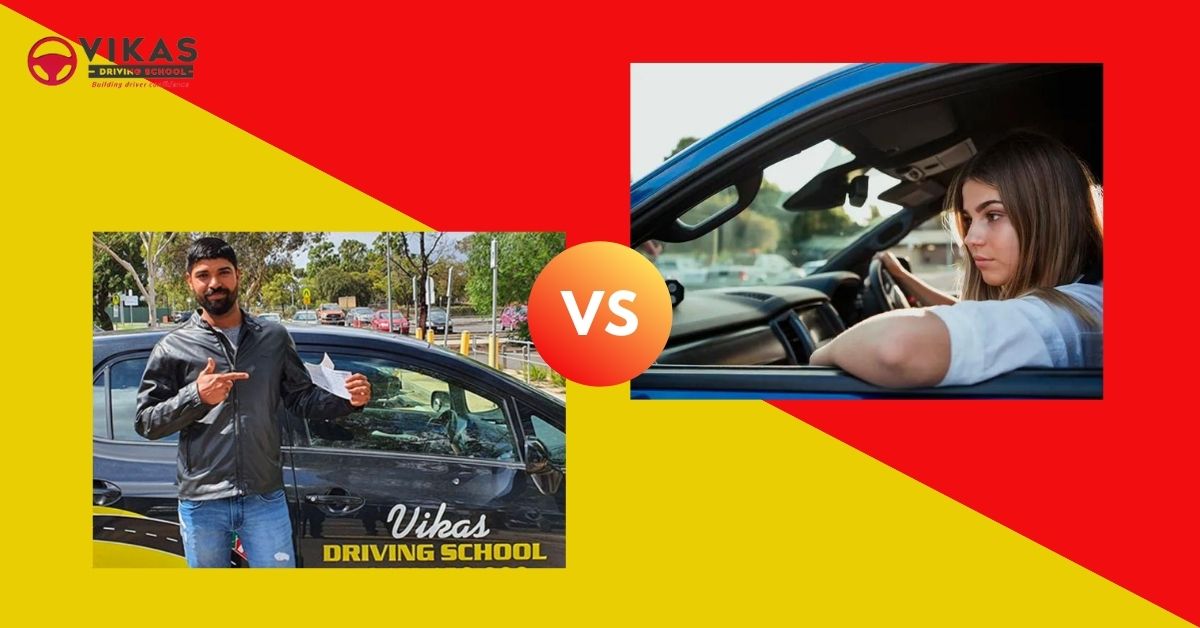In the ever-evolving landscape of education, the age-old debate persists: is it more advantageous to chart your own learning path through self-teaching, or should you invest in professional driving lessons to accelerate your progress? In this comprehensive guide, we will dissect the intricacies of both approaches, providing you with the insights needed to make an informed decision based on your learning style, goals, and resources.
Self-Teaching: Empowering Independence
Self-teaching has emerged as a formidable contender in the realm of education, particularly with the proliferation of online resources. Here’s an in-depth exploration of the advantages and challenges associated with the self-teaching approach:
Advantages:
- Flexibility Redefined: Self-teaching offers unparalleled flexibility, allowing learners to dictate the pace and rhythm of their educational journey. This autonomy is particularly beneficial for individuals juggling work, family, or other commitments.
- Cost-Effective Mastery: In an era where information is often at our fingertips, self-teaching can be cost-effective. Online tutorials, forums, and open educational resources provide an affordable alternative to traditional classrooms.
- Tailored Learning Experience: With self-teaching, learners can curate a personalized curriculum, honing in on specific areas of interest. This targeted approach often results in a more engaged and motivated learning experience.
Challenges:
- Navigating the Sea of Information: The abundance of online resources can be overwhelming, making it challenging to discern credible sources from misinformation. Self-learners must develop robust critical thinking skills to navigate this vast sea of information effectively.
- Accountability Struggles: Without the external structure of formal lessons, some individuals may find it challenging to stay disciplined and accountable. Procrastination and a lack of clear goals can impede progress.
- Isolation Woes: Learning in isolation can lead to a sense of detachment and hinder the benefits of collaborative learning. Interacting with peers and mentors fosters a sense of community that can be lacking in self-teaching environments.
Professional Driving Lessons: Guided Excellence
In contrast, professional lessons provide a structured and guided approach to learning. Whether through classes, workshops, or one-on-one instruction, this method comes with its own set of advantages and challenges:
Advantages:
- Expertly Crafted Guidance: Professional driving lessons often involve experienced instructors who bring expertise and real-world insights to the learning environment. Direct access to their knowledge can expedite the learning process.
- Structured Learning Path: Formal lessons come with a carefully crafted curriculum, ensuring that learners progress through foundational concepts before delving into more advanced topics. This structure can be particularly beneficial for beginners.
- Immediate Feedback Loop: The presence of an instructor facilitates immediate feedback, a crucial component for skill development. Correcting mistakes promptly and reinforcing positive habits accelerate the learning curve.
Challenges:
- Rigid Schedules: Professional driving lessons often demand adherence to a fixed schedule, which may clash with the busy lifestyles of many learners. This rigidity can limit accessibility for individuals with irregular commitments.
- Financial Investment: Unlike the cost-effective nature of self-teaching, professional lessons typically come with a price tag. This financial investment may deter some individuals, especially those on a tight budget.
- Limited Flexibility: The structured nature of professional driving lessons may restrict the exploration of niche topics or personal interests. This lack of flexibility can be a drawback for those seeking a more customized learning experience.
Choosing Your Learning Odyssey
The decision between self-teaching and professional lessons is inherently personal, and contingent on various factors. To aid you in this decision-making process, consider the following:
- Learning Style Assessment: Reflect on your preferred learning style. Are you a self-driven individual who thrives in autonomy, or do you benefit from the guidance and structure provided by a formal learning environment?
- Resource Evaluation: Assess your available resources, including time, budget, and access to materials. This evaluation will illuminate the feasibility of committing to self-teaching or investing in professional lessons.
- Goal Setting: Define your learning goals and objectives. If your aim is to acquire a broad understanding of a subject, self-teaching may be suitable. For mastery and proficiency in a specific skill, professional driving lessons might offer a more direct path.
- Hybrid Approach: Recognize that it’s not a binary choice. Many successful learners adopt a hybrid approach, combining the autonomy of self-teaching with the expertise provided by professional lessons for a well-rounded educational experience.
Conclusion:
In the dynamic landscape of education, the choice between self-teaching and professional driving lessons in Melbourne hinges on a multitude of factors. Both approaches possess unique merits, and the most effective strategy often involves a blend tailored to individual needs. Armed with a nuanced understanding of the advantages and challenges presented by each method, you can embark on a learning journey that aligns seamlessly with your aspirations, ensuring not only knowledge acquisition but a fulfilling educational experience.

